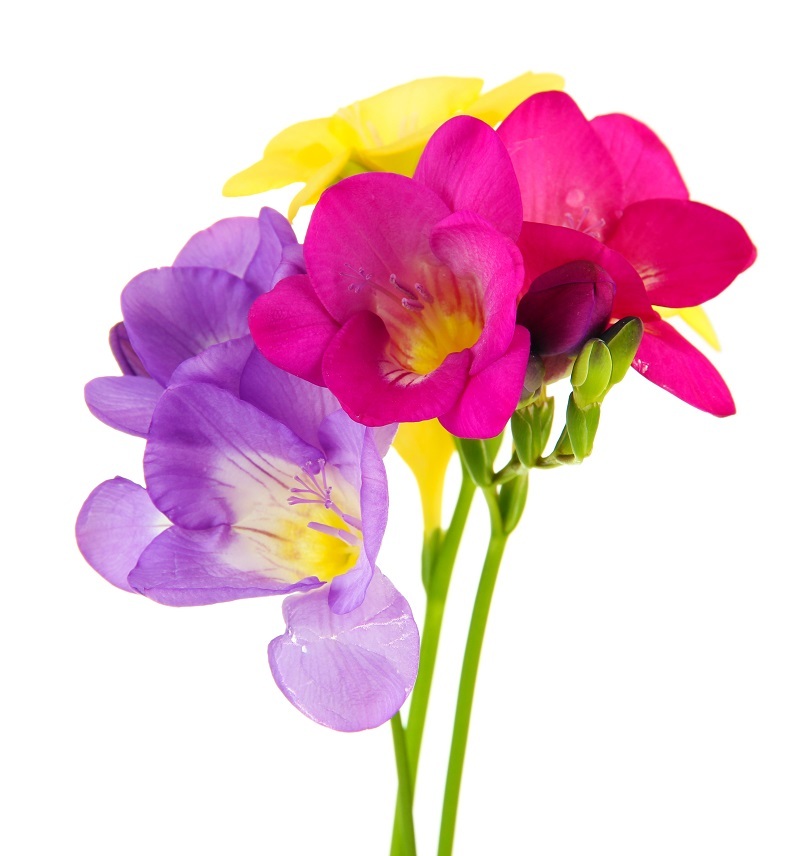Simple and Effective Methods for Flower Longevity
Posted on 01/09/2025
Simple and Effective Methods for Flower Longevity
Flowers offer natural beauty, brighten up any space, and are a cherished gift for many occasions. However, one of the most common challenges that arise after receiving or purchasing a bouquet is how to keep flowers fresh and vibrant for as long as possible. If you're wondering how to extend the life of your precious blossoms, you've come to the right place. This comprehensive guide will explore the best and most effective methods for flower longevity to keep your blooms beautiful and longer-lasting.

Understanding the Causes of Flower Deterioration
Before diving into the simple methods for increasing flower life, it is essential to understand why flowers wilt and fade quickly. Some of the primary factors contributing to flower deterioration include:
- Lack of water: Flowers dehydrate easily, especially once cut from their roots.
- Bacteria and fungi: Microbes in the water or on stems accelerate decay.
- Improper temperature and light exposure: High heat or direct sunlight can damage petals and leaves.
- Ethylene gas: This plant hormone, released by fruits and dying plant material, hastens the aging of blooms.
By addressing these factors, you'll be equipped with simple flower longevity methods that work wonders on any bouquet or arrangement.
Preparation: Setting the Stage for Longevity
Choose the Right Flowers
Starting with healthy, fresh flowers is the first step to extending their lifespan. When selecting flowers for yourself or as a gift, look for the following signs of freshness:
- Tight, just-budding blossoms that haven't fully opened
- Sturdy, green stems without wilting or browning
- Leaves that are crisp and free from spots or yellowing
Tip: Local or seasonal flowers often last longer as they haven't traveled long distances.
Prepare Your Vase Properly
A clean vase is essential for preventing bacteria growth, which is one of the leading causes of early flower decay. Follow these simple vase preparation methods for flower longevity:
- Wash the vase thoroughly with hot, soapy water and rinse well.
- Disinfect with a solution of one part bleach to ten parts water, then rinse again.
- Ensure no residue remains to keep your flowers safe from harmful chemicals.
Effective Methods for Prolonging Flower Life
Trim Stems Correctly
One of the simplest yet most effective ways to enhance flower durability is to trim the stems before placing them in water. Use sharp, clean scissors or a knife to:
- Cut stems at a 45-degree angle: This increases surface area for water absorption and prevents the stem from sitting flat at the bottom of the vase, which can simulate a "seal."
- Trim 1-2 centimeters off the bottom, and repeat every 2-3 days for continual freshness.
- Remove any leaves below the waterline to prevent bacterial growth which can clog the stems and hasten decay.
Use the Right Water Temperature
Many people don't realize that the temperature of the water you use can affect flower longevity. A good rule of thumb is:
- Most cut flowers prefer room temperature water (about 20?C or 68?F).
- Bulb flowers like tulips and daffodils may stay fresher longer in cooler water.
Always recut stems and change water every two days to maximize flower freshness.
Add Flower Food or Homemade Solutions
Florists often provide a packet of commercial flower food for good reason: it nourishes the stems and keeps bacteria in check. However, you can also make your own flower food at home using simple household ingredients. Here are some effective recipes for homemade solutions to extend flower life:
- Sugar and vinegar: Mix 2 tablespoons sugar and 2 tablespoons white vinegar per liter of water. The sugar feeds the flowers, and the vinegar kills bacteria.
- Lemon-lime soda: Add 1/4 cup of clear soda (not diet) to each quart of water for nutrients and a hint of acidity to deter bacteria.
- Bleach: A very small amount (1/4 teaspoon per liter) helps keep water clear of mold and bacteria.
Note: Always use these solutions carefully, and rinse vases thoroughly between water changes.
Monitor Water Quality Diligently
Clear, fresh water is fundamental for prolonging flower longevity. Dirty water is a breeding ground for bacteria and fungi, so you should:
- Change the water every two days, or sooner if it becomes cloudy.
- Rinse the stems and vase during each change to remove any slime or residue.
- Add fresh homemade or commercial flower food solution each time.
Mind the Environment
Placement can be as crucial as preparation. Follow these placement tips for maximum vase flower longevity:
- Avoid direct sunlight: Keep flowers out of intense light, which can cause premature wilting.
- Stay away from drafts and heat sources: Avoid radiators, vents, or appliances.
- Separate from ripening fruit: Many fruits emit ethylene gas, which hastens flower aging. Store flowers away from fruit bowls and vegetables.
Remove Wilting Blooms Promptly
As some flowers naturally fade, they may release substances that hasten the decline of neighboring blooms. Promptly remove wilted or dead flowers to preserve the rest of the arrangement for as long as possible.
Advanced and Uncommon Tips for Flower Longevity
Try Refrigeration Overnight
Professional florists always store cut flowers in cool environments. You can mimic this at home by placing bouquets in the refrigerator (typically between 36-46?F / 2-8?C) overnight. Just be cautious not to store them alongside fruits or vegetables that emit ethylene gas.
Use Clear Aspirin or Vodka
Believe it or not, adding a crushed aspirin (which lowers water pH) or a splash of vodka (which acts as an antimicrobial agent) can marginally extend the life of some blooms. Just use a small dose and combine with regular water changes for best results.
Mist the Petals
In hot, dry climates, gently misting the petals once a day can help maintain petal turgor and keep the flowers looking dewy and fresh.
Care for Specific Flowers: Individual Longevity Tips
Every flower has its own quirks. To ensure maximum vase life for different flower types, keep these guidelines in mind:
- Roses: Remove outer "guard" petals for a vibrant look, and recut stems often.
- Tulips: Stand tall and straight in cool water, and keep away from fruit and daffodils.
- Lilies: Remove pollen-laden stamens to prevent staining and wilt.
- Hydrangeas: Benefit from dipping cut ends in boiling water for a few seconds to seal and promote water uptake.
- Daisies & Sunflowers: Often last longer if stems are split or crushed at the ends.
- Orchids: Prefer only a small amount of water - avoid overfilling the vase.
How Long Do Fresh Flowers Last?
With proper attention, most cut flowers will last from 5 to 14 days in a vase at home. Here's a brief longevity chart:
- Chrysanthemums, carnations, alstroemerias: 10-14 days
- Roses, lilies, sunflowers: 7-10 days
- Tulips, daffodils, irises: 5-7 days
*Consistency in care can stretch these numbers by a few days.
Common Myths about Flower Longevity: Debunked
The Pennies-in-the-Vase Trick
It's often said that dropping a copper penny into a vase keeps bacteria at bay. While copper has antimicrobial properties, the effectiveness of modern US pennies (which are mostly zinc) is negligible.
Sugar Alone as Flower Food
Some believe sugar water alone will keep flowers fresher, but without an antimicrobial agent, sugar can actually feed bacteria and shorten flower life.
Different Water Levels Are Needed for Different Flowers
Most cut flowers thrive with the vase filled halfway. The stem's ability to uptake water is more important than the level itself.

Frequently Asked Questions about Flower Longevity
- Can I use tap water for flowers? Yes; just let it stand for a few hours before use to allow chlorine to dissipate.
- Why are my flower petals turning brown? Usually, this is due to old age or humidity. Keep flowers in cool, dry locations and change the water regularly.
- Should I put flowers in the fridge? Yes, overnight is helpful, but avoid cold drafts or freezing temperatures.
- Do flower preservatives really work? Yes, especially when paired with clean water and trimmed stems.
Conclusion: Enjoy Your Long-Lasting Blooms
Thanks to simple and effective methods for flower longevity, your cherished bouquets and arrangements will stay vibrant and beautiful for days, even weeks, longer.
To recap, always start with fresh flowers, use clean vases and tools, cut stems at an angle, add flower food or homemade solutions, and keep blooms cool and well-positioned. With a little care and attention, your flowers will fill your space with color and fragrance much longer, brightening every day.
Remember: A few small habits make a big difference. For more floral care tips and advice on keeping flowers vibrant and fresh for an extended time, bookmark this guide for easy reference. Enjoy your flourishing flowers!
Latest Posts
Unveil the Mood-Enhancing Secrets of Beautiful Blooms
Simple and Effective Methods for Flower Longevity
Ultimate Guide to Extending the Life of Poinsettias





